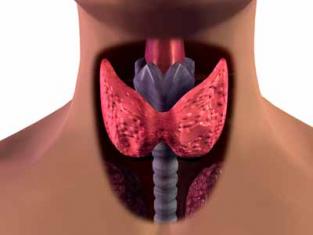


May is the International Thyroid Awareness Month, and on this occasion, Dr. Wiam Hussein - Senior Consultant Endocrinology and Diabetes, writes about the most common thyroid disorders and how to treat them
Thyroid diseases are some of the most common endocrine disorders, however; these disorders can be easily diagnosed and treated.
The thyroid gland is prone to several distinct problems, some of which are extremely common. These problems can be broken down into those concerning the production of hormone (too much, or too little) and those due to increased size causing pressure on the surrounding neck structures or simply appearing as a mass in the neck.
The thyroid is a gland, shaped like a butterfly, considered one of the largest endocrine glands in the body, and rests in the middle of the lower neck. Its primary function is to control the body’s metabolism. The thyroid gland produces hormones that influence essentially every organ, tissue and cell in the body. When the thyroid produces too much hormone, the body uses energy faster than it should (hyperthyroidism). When the thyroid doesn’t produce enough hormones, the body uses energy slower than it should (hypothyroidism).
Thyroid disease can be difficult to diagnose because symptoms are easily confused with other conditions. Fortunately, there is a simple blood test that can identify thyroid disorders early; therefore making the disorder easy to control before the onset of the symptoms. Thyroid diseases are life-long conditions and with careful management, people with thyroid disease can live healthy and normal lives. People with family history of thyroid are at risk of having it. Those with diabetes, Vitiligo, obesity, high cholesterol, hypertension, depression, infertility and irregular cycles should take extra care and be screened for thyroid disorders.
Underactive Thyroid Gland (Hypothyroidism)
Common symptoms of this condition include fatigue, lack of concentration and forgetfulness, muscle aches, constipation, dryness of the skin, dry coarse hair, weight gain, infertility and heavy menstrual periods. Slow heart rate, intolerance to cold and puffiness around the eyes may also occur. In some people the thyroid gland may be enlarged but this could be improved with treatment.
Thyroid hormone (Thyroxine) is important for women in order to get pregnant and is important for the fetus especially in the first 3 months. Pregnancy is perfectly safe in women who are on stable Thyroxine replacement; however, regular medical checks during pregnancy are important because of the possible increase in Thyroxine dose, which may be necessary as pregnancy advances to avoid complications to the fetus. It is most important that thyroxine treatment should be continued, especially early in pregnancy. If untreated it may increase the risk factors for heart disease and hardening of the arteries.
Treatment